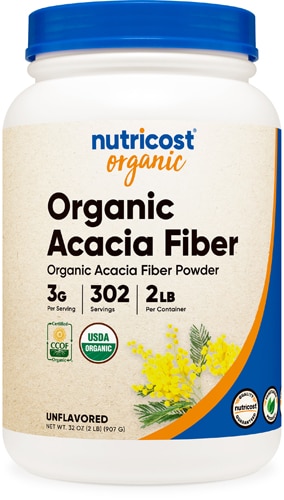[vc_row][vc_column][vc_column_text]As a parent, you may have been told that your child needs to eat enough fiber. Yet with kids being notoriously picky eaters, getting fiber into their diets can seem challenging. Because
fiber for kids plays such an important role in good health, taking steps to increase children’s intake can have many positive health effects.
Keep reading to learn more about why fiber matters for your child’s diet and how to help them get enough.

Fiber for Kids: What is it and Why is it So Important?
What is fiber?
Fiber is a type of indigestible carbohydrate found only in plant foods. Foods that are good sources of fiber are often referred to as complex
carbohydrates as they take longer to digest and absorb in your body compared to simple carbohydrates that aren’t high in fiber.
There are 2 types of fiber:
soluble and insoluble. Soluble fiber dissolves in water while insoluble fiber does not. Both types are important for good health.
Good food sources of fiber include:
Fiber is also sometimes extracted from a plant and added to foods to increase its fiber content. Common fiber additives include psyllium, inulin, bran and pectin. However, choosing foods that are naturally rich in fiber is generally still the more nutritious option.
How much fiber do kids need?
There is unfortunately no exact consensus on how much fiber a child needs per day. Some guidelines base it on a certain number of grams per calories consumed, while others base it on age or weight. According to the
dietary reference intake (DRI) guidelines, the following is considered adequate intake of fiber for children up to 18 years of age.
However, the
American Academy of Pediatrics suggests using the age of the child and adding 5 to determine how much fiber in grams a child needs per day. Using this guideline, a 5-year-old would need about 10 grams of fiber per day.
While these guidelines aren’t exactly in line, the ultimate goal is to make sure your child is eating good sources of fiber each day.
Why is it important for kids to get enough fiber?
Fiber has an abundance of health benefits for both you and your child.
These include:
Despite these many benefits,
data shows that most American children do not eat enough fiber. This is especially true for lower income and minority backgrounds, as well as for teenagers. This often corresponds with a worse overall diet quality.
One
recent study found that children who eat the most fiber tend to eat less total and saturated fat. They also tend to consume more of important vitamins and minerals including
vitamin B6,
magnesium,
iron and
potassium when compared to children who eat the least amount of fiber. Children who eat more fiber tend to consume more nutritious foods like fruits and vegetables, nut butters, whole grains and beans compared to children who eat less. Thus, increasing dietary fiber intake in children can help improve overall diet quality while also reducing the risk of many health conditions.
How to Help Your Child Eat Enough Fiber
You may not have complete control over what your child will eat. Yet there are still plenty of things you can do as a parent or caregiver to support your child in getting enough fiber in their diets. Here are some tips:
1. Switch to whole grain products.
Begin buying whole wheat products like tortillas, breads and
pasta. Serving
brown rice over white and offering other whole grain choices like
oatmeal will also help increase their fiber intake. You can dress these foods up however they like best.
2. Focus on plant-based proteins.
Beans,
edamame and
lentils are all great sources of both fiber and plant-based protein. Your child may enjoy a vegetarian
bean-based soup, cooked lentils mixed with a pasta sauce and favorite noodle (like this
vegan bolognese), or simply snacking on
dry roasted edamame.
3. Be nut and seed friendly
As long as there are no allergies, nuts provide many health benefits and are a good source of fiber. Aside from traditional peanut butter and jelly, your child can enjoy
nuts,
seeds, and/or
nut butter mixed in yogurt, in oatmeal, spread on fruit, in homemade snack bites or bars or as part of a
lower-sugar trail mix.
4. Offer more fruits and vegetables.
A good rule of thumb is to provide a fruit or vegetable at every meal. Whether or not they actually eat them,
research shows that the more exposure your child has to these foods, the more likely they may be to try them.
5. Get sneaky.
If your child is not used to eating many high fiber foods, it may help to hide them in foods they may already be enjoying. Examples of this may look like:
- Blending in spinach or frozen cauliflower into a smoothie
- Shredding zucchini and mix it into pasta sauce
- Sauteing some spinach, diced onion and/or bell pepper into scrambled eggs
- Puree vegetables, beans or lentils and adding them to a burrito, soup or dip with crackers
- Adding finely diced veggies to homemade meatballs or burger patties
6. Be a good role model.
Kids mimic what they see. Thus, one of the best ways to get your child to eat foods high in fiber is to have them see you doing so often. Having family mealtimes where nutritious, high fiber foods are served is a great way to practice this. In addition, you can talk to your kids about the foods, perhaps commenting on things like its color, flavor, taste, smell, and more. This can help further familiarize them with the foods and might make them more agreeable to trying them.
The truth is, though, that not all kids will be receptive to these tips right away. If your child is an especially picky eater, you may find it helpful to read more tips about
handling picky eating. In these scenarios, practicing patience during this phase while continuing to reinforce good habits are the best things you can do.
Fiber is an important part of a child’s diet. It provides numerous health benefits including supporting proper gut health, helping prevent or treat many diseases and weight management. High fiber foods such as whole grains, nuts, fruits and vegetables, are highly nutritious and should be a part of your child’s diet as often as possible. Setting a good example, offering a fruit or vegetable at each meal and even sneaking high fiber foods into foods they already like are just a few ways to help increase their fiber intake.[/vc_column_text][/vc_column][/vc_row][vc_row][vc_column][vc_text_separator title="Featured Products" border_width="2"][vc_row_inner equal_height="yes" content_placement="middle" gap="35"][vc_column_inner width="1/3"][vc_single_image image="166240" img_size="full" alignment="center" onclick="custom_link" img_link_target="_blank" css=".vc_custom_1682110424748{padding-right: 7% !important;padding-left: 7% !important;}" link="https://www.vitacost.com/poshi-steamed-marinated-french-bean-snack"][/vc_column_inner][vc_column_inner width="1/3"][vc_single_image image="166239" img_size="full" alignment="center" onclick="custom_link" img_link_target="_blank" css=".vc_custom_1682110444904{padding-right: 7% !important;padding-left: 7% !important;}" link="https://www.vitacost.com/lil-critters-fiber-gummies"][/vc_column_inner][vc_column_inner width="1/3"][vc_single_image image="166238" img_size="full" alignment="center" onclick="custom_link" img_link_target="_blank" css=".vc_custom_1682110464523{padding-right: 7% !important;padding-left: 7% !important;}" link="https://www.vitacost.com/brami-mediterranean-medley-lupini-beans-snack"][/vc_column_inner][/vc_row_inner][/vc_column][/vc_row]




